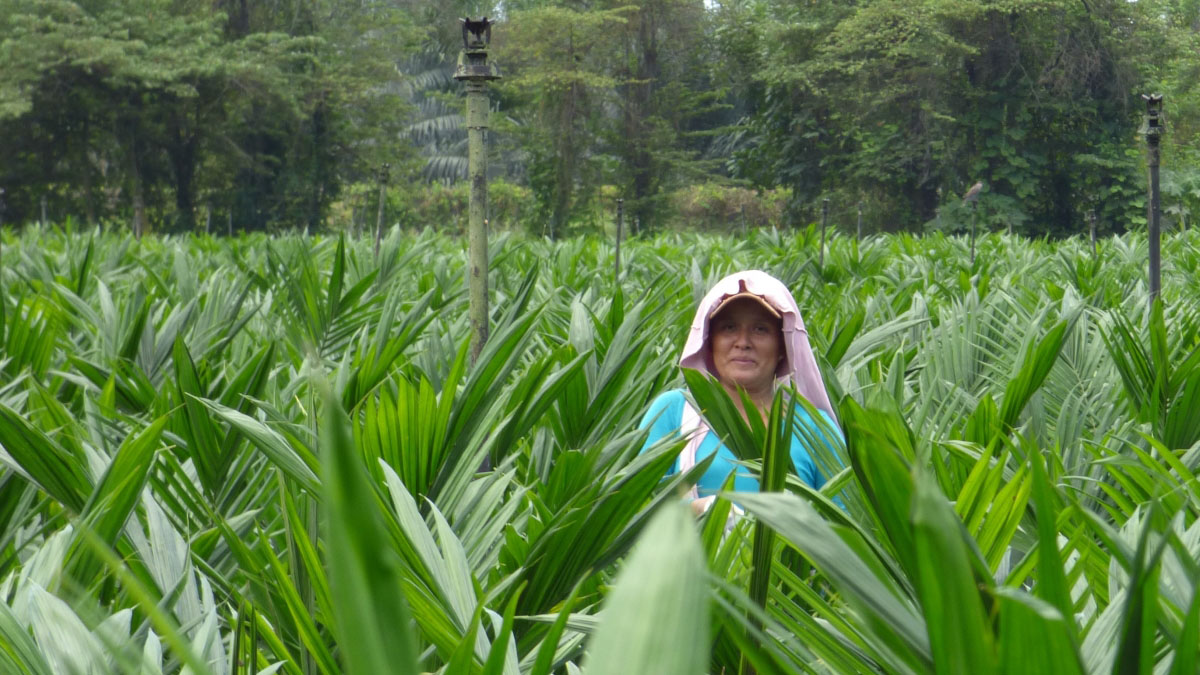This progress was achieved through the regional Mesoamerican Palm Oil Alliance (MAPA) initiative where key supply chain actors – including smallholders, managers and owners of large-scale plantations, civil society and government – engaged through multi-stakeholder platforms. MAPA was part of Solidaridad’s global Practice for Change programme, financed primarily by the Ministry of Foreign Affairs of the Netherlands from 2016 to 2022.
A productive crop, sustainably produced
Compared to other crops, such as sunflower or canola, oil palm is up to 10 times more efficient in yields per unit area. Oil palm can be a very profitable and resilient crop that can improve the living conditions of thousands of smallholders, like Cristóbal Choc in Guatemala.
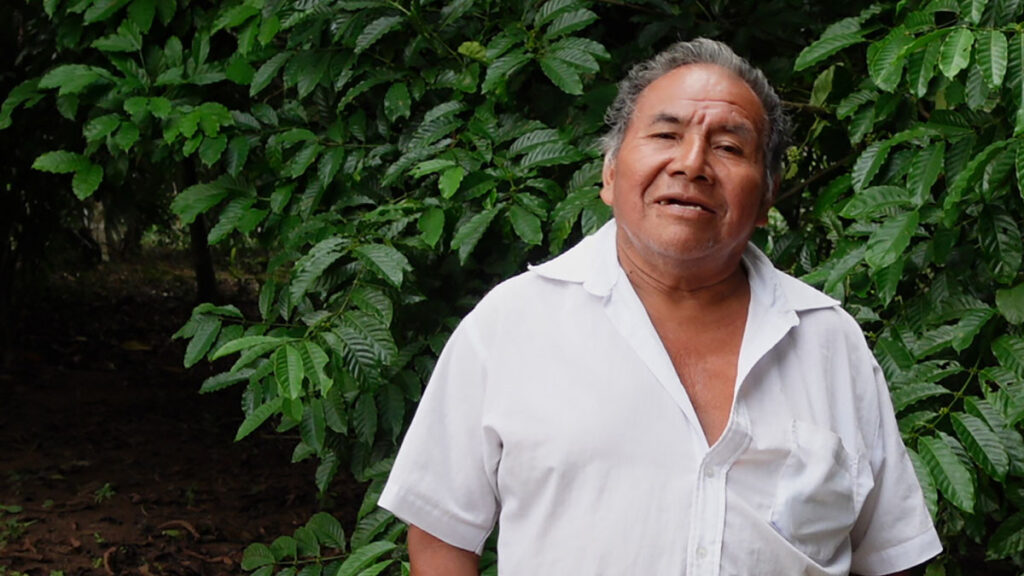
Although the crop has historically been controversial, it brings economic benefits to developing nations and meets strong global demand. Sustainable production is possible through interventions that put the smallholder and the environment at the center. During the seven years of MAPA, our strategy worked along three primary lines of intervention:
Increasing adoption of good practices among smallholders and large producers
Good practices are actions and initiatives that help smallholders and workers to improve their performance. This means producing in balance with nature, in a socially responsible way, and optimizing agricultural management practices to increase production and income. In the oil palm programme in Mexico, Guatemala, Honduras, and Nicaragua, over 345,000 hectares are under sustainable management with over 12,800 producers and 43 palm oil mills.
The idea is to promote the change from traditional production practices to more sustainable practices, to generate a change in the chain from start to finish.
José Luis López, Manager of Solidaridad Guatemala
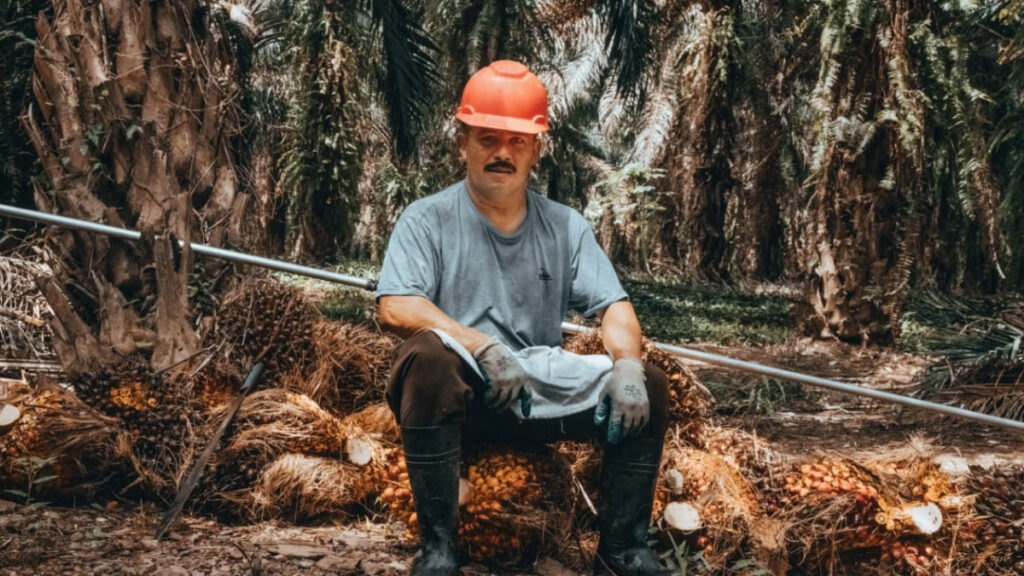
Solidaridad and producers improved their practices through the following interventions:
- Technical assistance to privately-owned companies, social enterprises, cooperatives, and producers in the palm oil sector.
- Farmer Field Schools (FFS), workshops, and practical learning in demonstration plots allowed for the inclusion of 12,800 smallholders (2,950 of them are women) and the participation of youth.
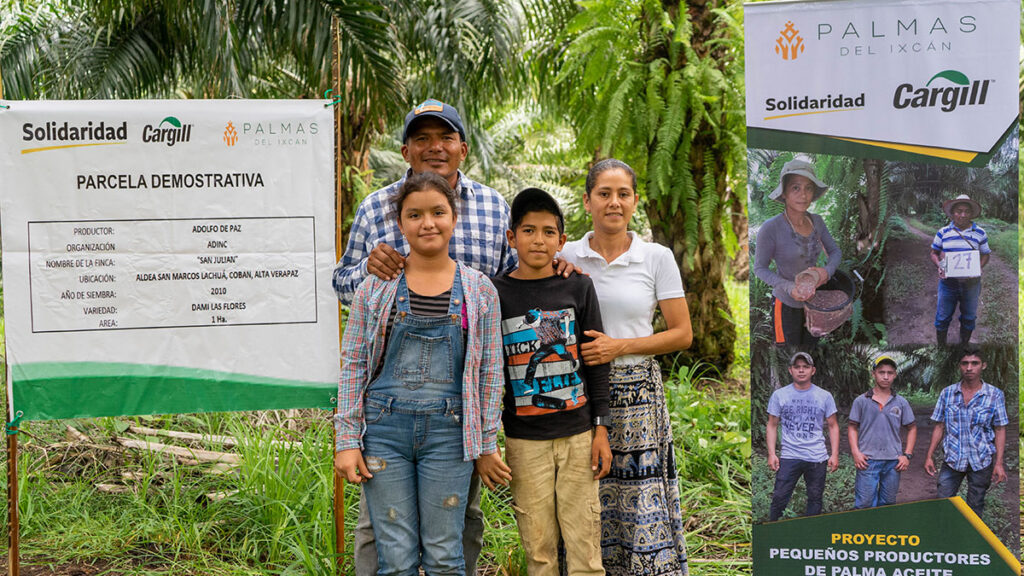
- Learning exchange trips
- Digital tools to record and organize data so producers can make more timely and informed decisions. This includes tools such as a nutritional calculator, harvest forecaster, RSPO checklist, a biodiversity monitoring system and Farm Diary.
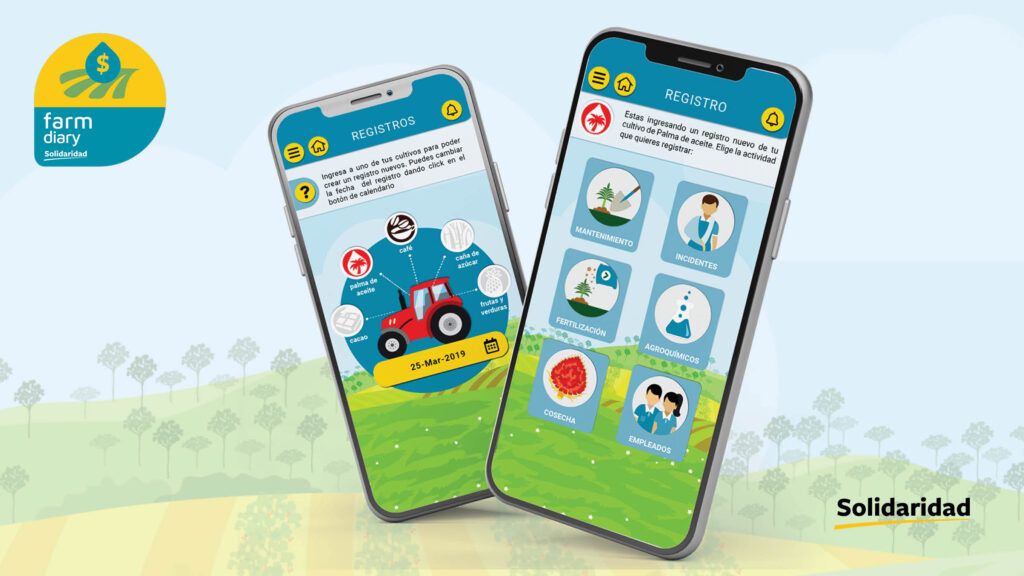
- Developing training resources such as a Handbook of good agricultural practices for smallholders, a Record book for the field, and a Handbook of nutritional deficiencies in palm oil cultivation (all in Spanish).
- Land titling to better position the smallholder, through legalization, to invest and improve their farm.
Support for continuous improvement through certification and adaptation of the RSPO Standard
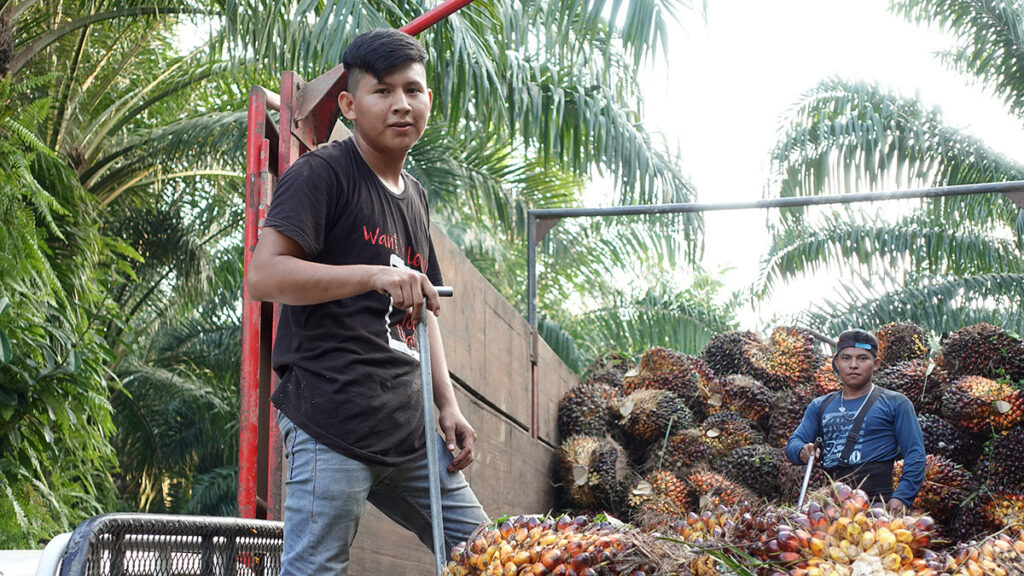
The Roundtable for Sustainable Palm Oil (RSPO) first issued the Principles and Criteria for the Production of Sustainable Palm Oil in 2005. These Standards cover 163 indicators aimed at protecting human rights and natural resources. Over the last seven years, MAPA has supported more than 40 palm oil mills in the region to implement practices and policies that comply with the RSPO standard.
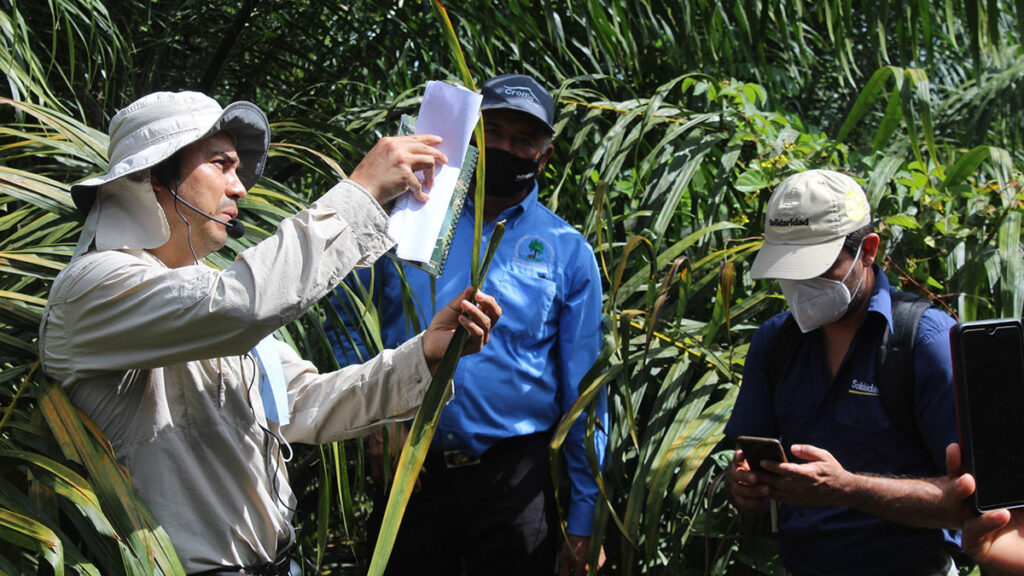
In 2020, Solidaridad led the national interpretation of the RSPO Principles and Criteria in Guatemala, Honduras, and Nicaragua, adapting the Standard to the legal framework of each country. This process was carried out on a virtual platform due to the COVID-19 pandemic.
Furthermore, the sector in Honduras has achieved 33,200 ha of RSPO-certified oil palm; Guatemala has achieved more than 107,000 ha of certified oil palm (en Español). It’s estimate that 60% of the total production volume in Guatemala is certified under standards such as RSPO and ISCC.
Biodiversity and environmental protection
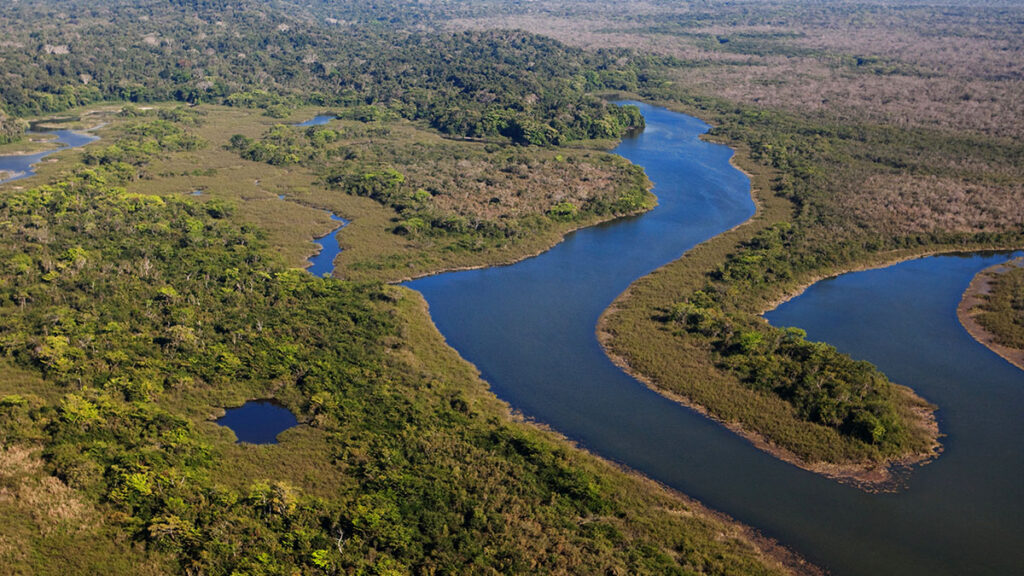
One of the biggest global challenges is to identify strategies that increase farm yields while protecting natural resources. We have worked to advance this goal through the following initiatives in the oil palm sector:
- Promoting biodiversity conservation in palm landscapes through biological monitoring systems, proposals for the restoration of biological connectivity, and by training technicians from producing companies.
- Bringing stakeholders together from the agricultural sector with social, environmental, and government actors to develop proposals and define agreements under an Integrated Landscapes Management approach.
- Leading efforts to establish public-private partnerships that contribute to the compensation processes and supporting investment to conserve almost 70,000 hectares in the Guatemalan Protected Areas System.
Aiming for zero deforestation in the palm sector
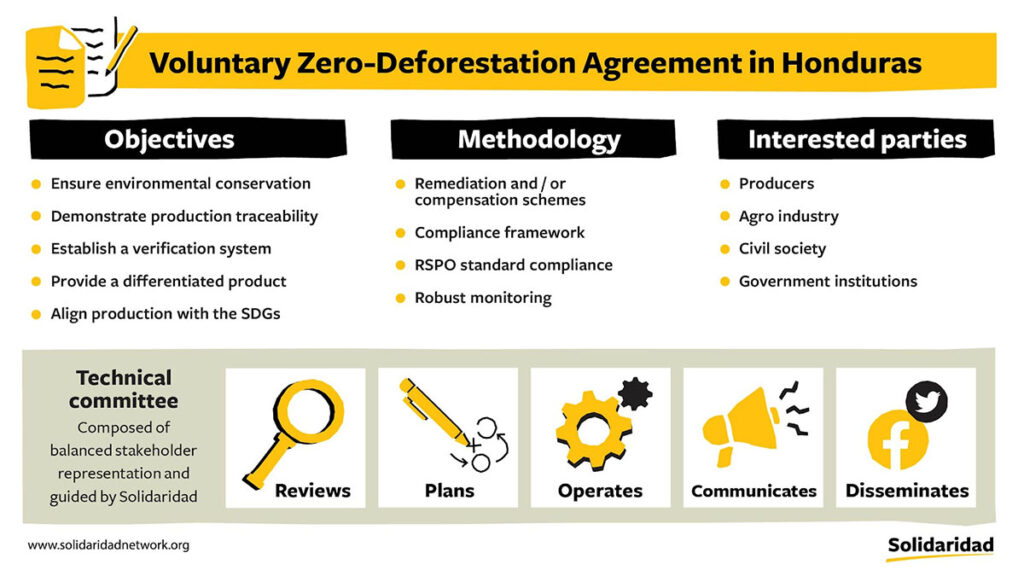
The voluntary zero-deforestation agreement in the palm sector in Honduras is one of MAPA’s most significant achievements. It has been ratified and 100% of the sector is committed to protecting forest areas. The next step is to develop an implementation and verification strategy.
This is the second agreement of its kind signed in Latin America. In Honduras, we work with the full conviction that sustainability is achieved through shared responsibility, dialogue, and transparency.
Sofía Núñez, Manager of Solidaridad Honduras
At Solidaridad, we are committed to generating lasting change, seeking a fairer and more inclusive supply chain, putting smallholders at the center, supporting good practices, and seeking sustainability.

